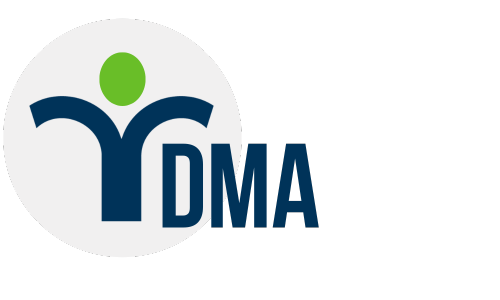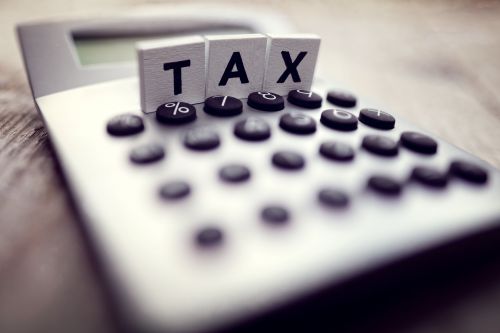
CRA Service Levels Rate Poorly in Advisor Poll
Over 96% of advisors surveyed in last month’s Knowledge bureau Report poll said that despite ramping up various initiatives and staffing levels, CRA’s service levels have worsened significantly and the commentary around this was interesting. For the few who said yes, there were no specific embellishing comments, but for those who said no, there was a lot of scathing detail. Take a look:Introducing the 2025 Acuity Conference for Distinguished Advisors!
 As we get ready to kick off Acuity 2024 in Montreal this weekend, we’re giving you a sneak peek of what’s in store for the 2025 Acuity Conference for Distinguished Advisors! We’re headed back to Puerto Vallarta November 23-26 and you can save 50% on tuition when you register by November 15 for Canada’s only top-tier multi-disciplinary conference for leading tax, accounting and financial services professionals.
As we get ready to kick off Acuity 2024 in Montreal this weekend, we’re giving you a sneak peek of what’s in store for the 2025 Acuity Conference for Distinguished Advisors! We’re headed back to Puerto Vallarta November 23-26 and you can save 50% on tuition when you register by November 15 for Canada’s only top-tier multi-disciplinary conference for leading tax, accounting and financial services professionals.
Get Up to Speed on Year-End Tax Planning!
 New Capital Gains Inclusion Rates Change the Game: are you prepared to help? Learn New Year-End Tax Planning Techniques from Our Special Guest Experts with the CE Savvy Summit, featuring live event recordings from the November 6 virtual sessions. This is an opportunity to upskill your knowledge, learn from Canada’s top experts an earn 15 CE Credits before year-end. Plus, you have an opportunity to earn your Diploma in Advanced Family Tax Compliance.
New Capital Gains Inclusion Rates Change the Game: are you prepared to help? Learn New Year-End Tax Planning Techniques from Our Special Guest Experts with the CE Savvy Summit, featuring live event recordings from the November 6 virtual sessions. This is an opportunity to upskill your knowledge, learn from Canada’s top experts an earn 15 CE Credits before year-end. Plus, you have an opportunity to earn your Diploma in Advanced Family Tax Compliance.
Canada’s Income Tax Fundamentals Course™: Save $100 This Month Only!
 New! Get hooked on taxes preparing true-to-life case studies on professional tax software. File simple tax returns confidently. This 20-hour pre-requisite to Knowledge Bureau’s highly acclaimed professional Diploma and Designation Programs is perfect for anyone new to personal tax filing and especially valuable for career development in the tax preparation or financial services. This month only, save $100 on tuition as a Black Friday Special Offer!
New! Get hooked on taxes preparing true-to-life case studies on professional tax software. File simple tax returns confidently. This 20-hour pre-requisite to Knowledge Bureau’s highly acclaimed professional Diploma and Designation Programs is perfect for anyone new to personal tax filing and especially valuable for career development in the tax preparation or financial services. This month only, save $100 on tuition as a Black Friday Special Offer!
Bare Trust Filings: Are T3s Required for 2024?
 Great news! CRA has a Halloween treat for tax accountants and their financial advisors this year: it will not require bare trusts to file a T3 return include Schedule 15 for both the 2023 and in the 2024 tax year. This confirms the position in the draft legislation released over the summertime and previously reported in Knowledge Bureau Report. Here’s the backdrop:
Great news! CRA has a Halloween treat for tax accountants and their financial advisors this year: it will not require bare trusts to file a T3 return include Schedule 15 for both the 2023 and in the 2024 tax year. This confirms the position in the draft legislation released over the summertime and previously reported in Knowledge Bureau Report. Here’s the backdrop:
Charities, Abortions and Reproductive Counselling
 New legislation introduced on October 29 will require a registered charity that provides reproductive health services to disclose if, at a minimum, it does not provide the contact information for an abortion services provider and a birth control service provider. The new tax rules will apply 90 days after Royal Assent and information disclosure requirements will apply starting in the 2025 taxation year. Here’s what you need to know:
New legislation introduced on October 29 will require a registered charity that provides reproductive health services to disclose if, at a minimum, it does not provide the contact information for an abortion services provider and a birth control service provider. The new tax rules will apply 90 days after Royal Assent and information disclosure requirements will apply starting in the 2025 taxation year. Here’s what you need to know:


